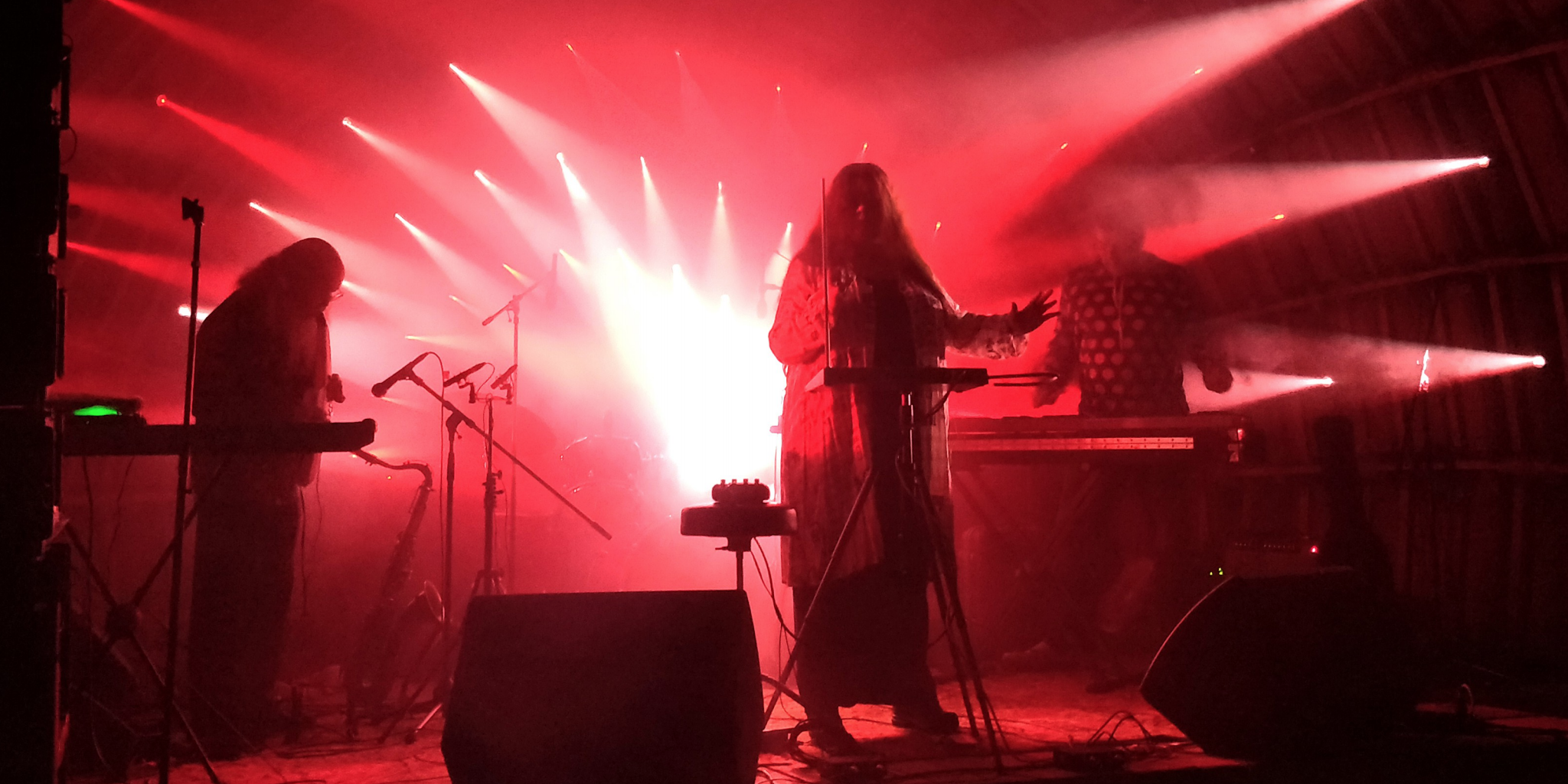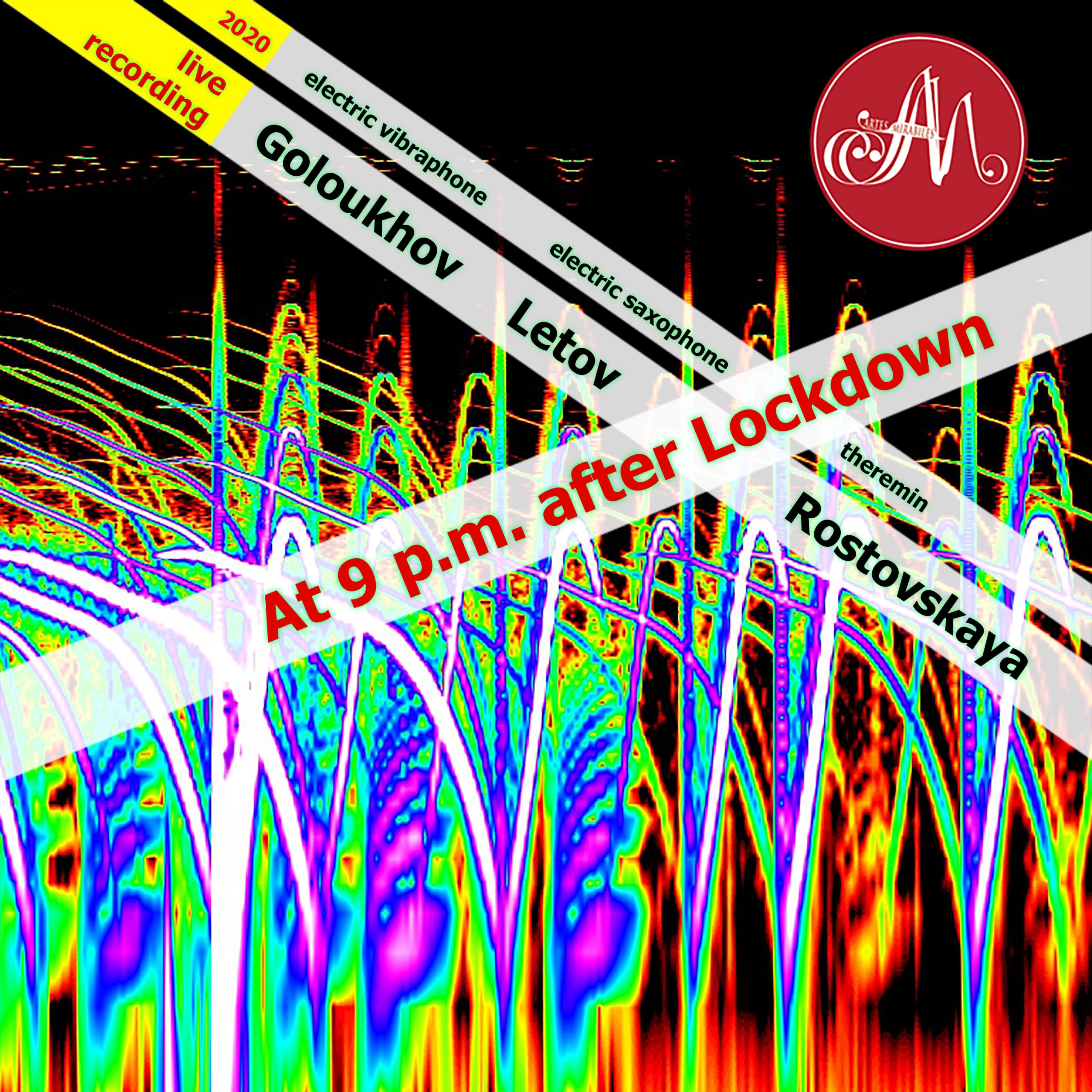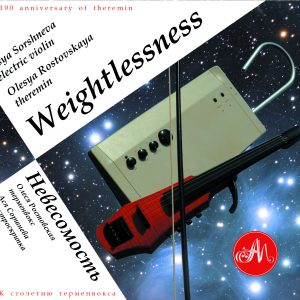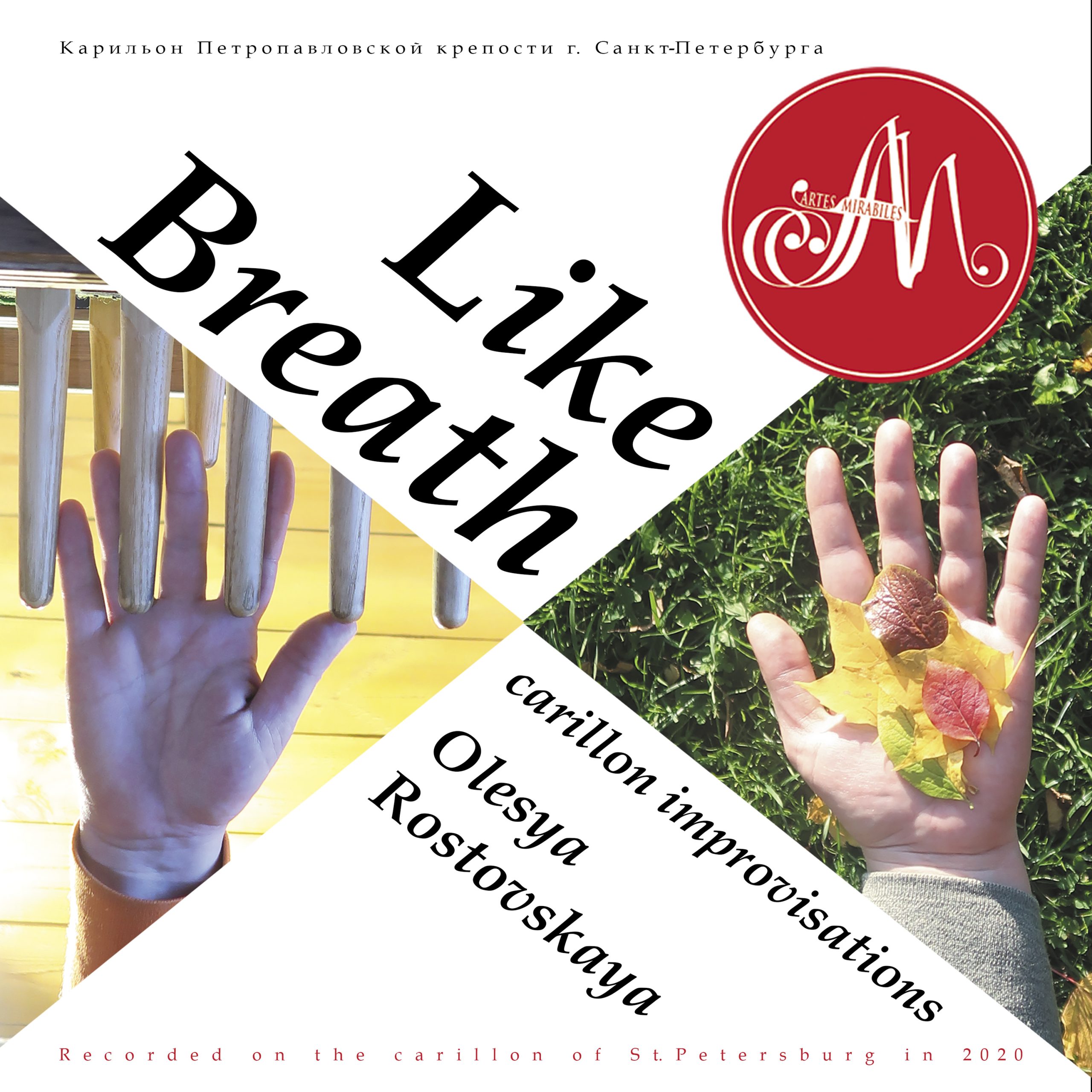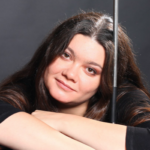Where do improvisations come from? In what way is the improviser different from other musicians? How can one guess what their partners are going to play? And should one commit hara-kiri after the improvisation? Three experienced musicians, who recorded a live concert album called, “At 9 p.m. after Lockdown” – on the first day after the lifting of the lockdown. Below Sergei Letov, Vladimir Goloukhov and Olesya Rostovskaya answer questions concerning improvisation.
What is more difficult, to learn an existing piece or to improvise?
Sergei Letov (saxophone):
– Learning an existing composition is more difficult for me, although at home I only play from the sheet music. In order to improvise I have to accumulate some kind of mental energy, so I try not to waste it at home. I must long for an improvisation, so I allow myself to do it only in public, during a concert. While practicing at home I mostly play baroque music.
Vladimir Goloukhov (vibraphone):
– If you ask protagonists of classical music the answer will be obvious: of course, it is much easier to play what has been written by great composers. If you ask those who prefer improvisation the natural answer would be “Does it really make sense to repeat what has already been written? For sure, one should compose, invent. Life is a play and playing is creative and creativity is God’s commandment, isn’t it?”
Olesya Rostovskaya (theremin):
– It depends on my inner state of mind. With improvisation it’s different than when playing in concert from sheet music. This is difficult to describe with words, it is more poignant and at the same time sort of blurred, all your senses, hearing, attention and even smell are sharper and also a bit unreal because you yourself are part of the flow.
-
At 9 P.M. After Lockdown€12,99 – €31,99
From where does it come? From where does improvisation originate?
Sergei Letov:
– I need a kind of task, sometimes a verbal one. Sometimes I say to myself, “I need to play paradoxically, do something in an unexpected style, surprise.” Or “I must try and follow the others as closely as possible and not stand out, scare or disappoint”. Or it may be a technical assignment, such as the mode, tonality or time but I also have to know what I am supposed to do, what is expected from me.
Vladimir Goloukhov:
– Sound is the same as our words or voice, therefore before any performance or concert it is extremely important to tune in to the right breathing for people to hear feelings that instantly resonate in others. People are like children. When they hear someone or something around, they will unwittingly associate it with themselves. If they perceive goodness, some logical emotional field or space with which people can associate themselves and their own emotions they like it, it has an impact. That is why it all depends on how we tune ourselves.
Olesya Rostovskaya:
– I have no problem getting an intonation or musically meaningful idea from my head. I am a composer and there is always some musical material being processed in my mind, a kind of ‘inner radio’. That is why standing behind the theremin or sitting down at the organ or carillon and instantly producing something that is acceptable is not difficult for me. Playing a major long improvisation with a complete form is a different matter. It takes not just ‘material’, but conscious composer’s work that takes place in the process of performance.
It may be difficult for the audience to believe that the performer on the stage is playing so many notes with such ease, so some people think that it is not an improvisation but a number of previously prepared versions. Do you ever use these?
Sergei Letov:
– Yes, as a rule I do use previously prepared versions. Generally speaking, improvisors’ results very much depend on their thesaurus, on the technical, musical and intellectual ‘library’ that they have at their disposal. On the one hand, it is certainly important for a musician to listen to and to know a lot, but on the other, it’s just the opposite: the more you know, the more you are tempted to repeat not your own, but what other people have done. I must say, I don’t listen to a lot of other people’s music because I try to avoid the pressure of other people’s ideas. It’s all right to repeat somebody intentionally, but it’s not good to do it unconsciously.
Vladimir Goloukhov:
– I certainly use previously prepared versions, I have developed not exactly patterns, but rhythmic vectors and harmony solutions. Previously prepared versions are a necessary thing; they are balls of yarn that unwind into improvisations.
Olesya Rostovskaya:
– Generally speaking, I do not have any previously prepared versions, although I do have some tricks that help. For example, quite often at my concerts people would like to hear the theremin solo, without the organ, piano or orchestra, without the ‘minus one’ tape. I could write such a piece and play it every time. Anyway, I prefer an improvisation, each time it is new music, although I always know in advance that in this case, I will play something lyrical, within the range of a female voice.
How do you know what your partners are going to do in a team improvisation?
Sergei Letov:
– It is not always possible to make the right guess. To begin with, you have to know whether your partner has heard you. Not everyone does. Some prefer to show their authority, with everyone else just accompanying them. But many good musicians will hear you. For musicians at that level, it is not so important who is in the lead. They work for the whole, not for self-assertion.
Sometimes I understand that one of my partners has a previously prepared version, an interesting move that should be followed so I have to listen to what that other musician in the ensemble is doing, as well as look at the audience and assess the level of their understanding, because we also have to adapt to the audience.
You have to keep several considerations in mind, as for example, when you are swimming you do not have separate notions of what each of your arms is doing when your nose and mouth are under or above the water, and still, you are swimming. The same happens during an improvisation, it is similar to swimming. That is to say, improvisation takes place in an intense, elevated state when several things happen simultaneously. The flow of time is so overpowering.
Vladimir Goloukhov:
– I play mostly within jazz tradition or fusion which has a very clear outline and definite harmonies which one must always keep in mind, even if you wander off into your own “stories”. You have to understand where you are in the bar, square or rhythm. You must also have a rhythmic connection with your partners, that is why for me a team improvisation first and foremost means discipline, strict rhythm, harmony and hopefully melodic discipline. No matter how innovative we are, the human ear mostly listens for a melody, harmony and clarity. Music critics may loudly welcome the new language and afterwards, sick and tired of it, they get into their cars and turn on Mozart.
In our album “At 9pm After Lockdown” the different character of our three instruments was anticipated. My instrument is quite rhythmic and strictly harmonious, it sticks to the pattern; the saxophone is expressive, forceful, dramatic and vibrant, while the theremin by contrast is liquid and floaty, psychedelic and bewitching, coming from the world of pagan sagas, it is a different reality that flows over you. This concoction, with each of us in our own world, comes together; each of us correlating with the rest.
Also, we were playing in this strange year when everything had become absolutely unclear, irrational and totally different. During the concert there were bonfires around the stage. People who on the one hand, longed to be part of a crowd, and on the other, wandered around trying to observe social distancing. One could sense a confrontation of opposite moods in the air. The musicians got hold of an audience, the audience got hold of live music, and nature itself helped: was it day, night, or dusk? Were we to listen and dance, ‘drink a cup of tea or hang ourselves’?

Olesya Rostovskaya:
– A good working option is to let the others begin, see what they are going to do, in what direction they are moving, what intonations, chords and tempos they are producing. This is not only pragmatic, but also polite, because the thereminist is a solo performer by nature demonstrating a unique method of playing. That is to say, at certain moments the attention of the audience will be fully focused on the theremin, which is why it is right to allow other people space for their own narrative. It is also very good when, during an improvisation, partners do not play all together every single moment but leave space for each other.
For me eye contact is also very important. Although while recording “At 9 p.m. After Lockdown” – link to the album – it was during a concert – the guys placed me in the centre, in the foreground. I wanted Sergei Letov to be in that position and play the role of the frontman in every sense of the word. That would have allowed me to be slightly at the back and able to see him and Vladimir, but Sergei was determined to place me in front, so I didn’t have eye contact with them, though this time it turned out to be quite unnecessary and the recording produced instances that sound as if we had previously rehearsed it. In fact, the entire rehearsal had lasted a couple of minutes during the sound-check, to establish balance between the instruments.
How does an improvisor differ from other musicians and what are the essential qualities for improvisation?
Sergei Letov:
– The essential quality is that an improvisor must be very brave, and even arrogant in a positive way. One has to be in a highly elevated state of mind, when the sky is the limit. It may be an illusion, but in fact you get out on to the stage just for that. It requires a certain degree of narcissism, that is to say, when one gets out onto the stage and demonstrates oneself to other people one cannot help loving oneself, otherwise why get out at all? Showmanship is a must for anyone who performs on the stage better than during a rehearsal. Do not feel awkward or afraid; you may make a mistake, not every performance is good, not every improvisation is perfect, but the important thing is not to be afraid of disapproval or public failure.
Vladimir Goloukhov:
– First and foremost, it is inner freedom. In an improvisation at some point, you take on everything, not only everybody’s attention, but responsibility for everything that happens, you become the starting point of musical development, musical situation. In a good sense, improvisors are non-team players, lone wolves, each of them being his or her own Lord Byron, Goethe and the Pope.
Olesya Rostovskaya:
– First and foremost, it is courage. You are on the stage feeling absolutely naked, even if you are playing a well-rehearsed programme from sheet music. If you are improvising it is as if you were without skin and in plain view. If you have no substance, if you have nothing to say, you won’t be able to hide behind music sheets or anything else. Your very inner self is on display. On top of that, it is professionalism in the technical sense of the word. You must know your instrument and know yourself at this instrument. Discipline is also important, of course. Whatever happens, you must carry on.

Have you had any funny or awkward instances during an improvisation?
Sergei Letov:
– I was once performing with a Japanese dancer and a Japanese pianist. The dancer was well over 60. Before the concert she saw the poster, which featured not her own face but that of her young trainee. She did not say a word but in the middle of the programme she suddenly left the stage. I thought that was the plan and carried on playing. As for the pianist, he realised she had taken offence and left on purpose in order to spoil the performance. Nevertheless, we carried on playing, though our understanding of the situation was quite different: he thought that it was a disgrace after which one had to commit hara-kiri, and I thought that I had been given the wrong idea of the scenario. The funny thing was that after we had finished, the lady took the curtain as if nothing had happened. After that she and the pianist never performed together again.
Vladimir Goloukhov:
– We were playing Iannis Xenakis with the composer himself present. It so happened that we had not rehearsed the music enough and during the performance we got confused. Xenakis’ music is not a 4/4 beat, it does not have any recognisable leitmotifs, main or subsidiary themes or sonata allegro, it has various sounds and timbre variations that alternate each time after a pause. That is where we got lost. The conductor blushed, tried to make some signs, we were trying to come together, but nothing helped. That is when I realised that somehow, we were lacking percussion instruments and started to improvise some vibraphone cords. While doing so I thought, “Oh my, poor Xenakis, what is he hearing?!” It ended up as an improvisation by the entire orchestra. After we finished the conductor showed us all his displeasure by discreetly shaking his fist in front of him. Then there came a respectful silence and Xenakis got onto the stage to shake everyone’s hand, but he has never returned to Russia since then.
Olesya Rostovskaya:
– Once in Kazakhstan I played with an Estonian pianist Tanel Joamets. It so happened that among the audience there was a man who had… some learning difficulties. He was quite harmless but rather noisy and childish. Somewhere in the middle of the concert he had had enough, stood up and said, quite loudly, “Okay, that’s it, I am leaving”. All of a sudden, without taking his hands off the keyboard, Tanel sang, “I am gone…” and carried on playing. I joined in with my theremin. “You are gone…” continued Tanel, while I also carried on playing. Meanwhile a photographer, obviously from a local paper, kept moving around. By that time, he had clicked with his camera a hundred times in the quietest bits of the music. “The photographer is gone…” continued Tanel, “summer is gone…” I played the sounds of birds flying to the south. What an ovation we were given at the end! You can see the video here.
What is your most memorable, grandiose improvisation, something of which you are really proud, something that really made your day?
Sergei Letov:
– I have a lot of that, I try to make sense of every day of my life. As for incredible improvisations, for me they are mostly linked to the sites where they took place. For instance, in my youth a friend of mine and myself happened to be in a small Estonian village. After the church service we went up on to the bell-tower and started improvising – the bell and alto saxophone. On hearing that, a student construction team arrived from a neighbouring village.
As for our album “At 9pm After Lockdown” – link to the album and our trio, it seems to me that it is quite unusual and special because we are all playing electronic instruments. Electronic instruments can be played not only by turning controls and it should not necessarily be dance or disco music, it doesn’t have to be all screeching and squelching. Electronic instruments can be played in the same way as any other instrument. They provide you with massive opportunities that acoustic instruments lack. They are as good as acoustic instruments and they also create music, not just a technical background.
Vladimir Goloukhov:
I was lucky enough to play an improvisation solo on marimba at a jazz festival in Stuttgart, one of the world’s major festivals, with many famous critics and an educated public in attendance, when all the tickets were sold out. That made a strong impression, I received quite an ovation and it made me feel as if I had risen to a new level in my professional development. I remember a few similar moments when I felt the compassion of the audience and I was holding their attention with the ends of my vibraphone beaters.
Olesya Rostovskaya:
– I have had quite a few great moments, quite unexpected and lucky, too. I can see them in front of my eyes just now and it makes me smile.
I am happy that Asya Sorshneva and I have issued the “Weightlessness” album, involving the theremin and electric violin. Asya did not allow us to mention in the album notes that we had worked at it for three years, since she thinks that “work” implies that we had been turning over, in the sweat of our brow, hundreds of tons of ore for three years. In fact, from time to time we used to get together in the studio and played to our hearts’ content, as much as we wanted. We chatted, had tea, played again and had a wonderful time together. Then at some point we realised that we had enough material to select the best tracks and make up an album.
-
Weightlessness€20,99 – €37,49
As for the “Oort Cloud” album, it appeared quite by chance. I was in the organ hall, rather, in the church, after a regular classical recording session, it was about 3 in the morning and all of a sudden, I felt like improvising. My brain was so tired, it refused to work, but I was caught in a kind of “flow”, it actually came to the fore – a production of strange sounds quite uncharacteristic of the organ. The organ is never played in this way, when you have complete, total contact with the instrument, as if you were at one with the organ. Everything else ceased to exist – no audience, no laws of the concert genre, no time, no form, only sound. I was very lucky that the equipment kept working and it all happened to be recorded.
-
Oort Cloud: Outer Space Organ Improvisations€17,99 – €34,49
I must mention the album “Like Breath” which is also closely linked to the lockdown, just like “At 9pm after Lockdown”. Because of the pandemic I did not have access to the carillon for 6 months. You will understand how I felt if due to the pandemic you haven’t seen your child or parents for half a year. All these months I would go to the forest spending many hours there, several times a week, from dawn to dusk. It is natural that in the forest, in silence, the “radio” in the head plays at full volume, and quite often, for many months in a row, it “broadcast” the sounds of the carillon. I did not try to fine-tune any ideas for future pieces, I just let the carillon accompany my wanderings about the forest. It was like a sound-track to a film which is your real life. When the carillon was reopened, I asked sound-engineer Alexey Pogarskiy to set up the equipment and record my music. It was not so much because I believed it would come out good, but because I was eager to hear the result “from the outside”. And it worked. It took me a while to arrive at a decision to publish it, because the degree of self-exposure there is unprecedented, I was even afraid to show how much. Still, after all, it is part of the profession and it is normal. And here it is, the album has come out. I hope, while hearing the album tracks, in their mind’s eye, listeners will imagine the serenity of the forest and its green trees or some other places where they used to feel happy.
-
Like Breath: Carillon Improvisations€13,99 – €29,49
